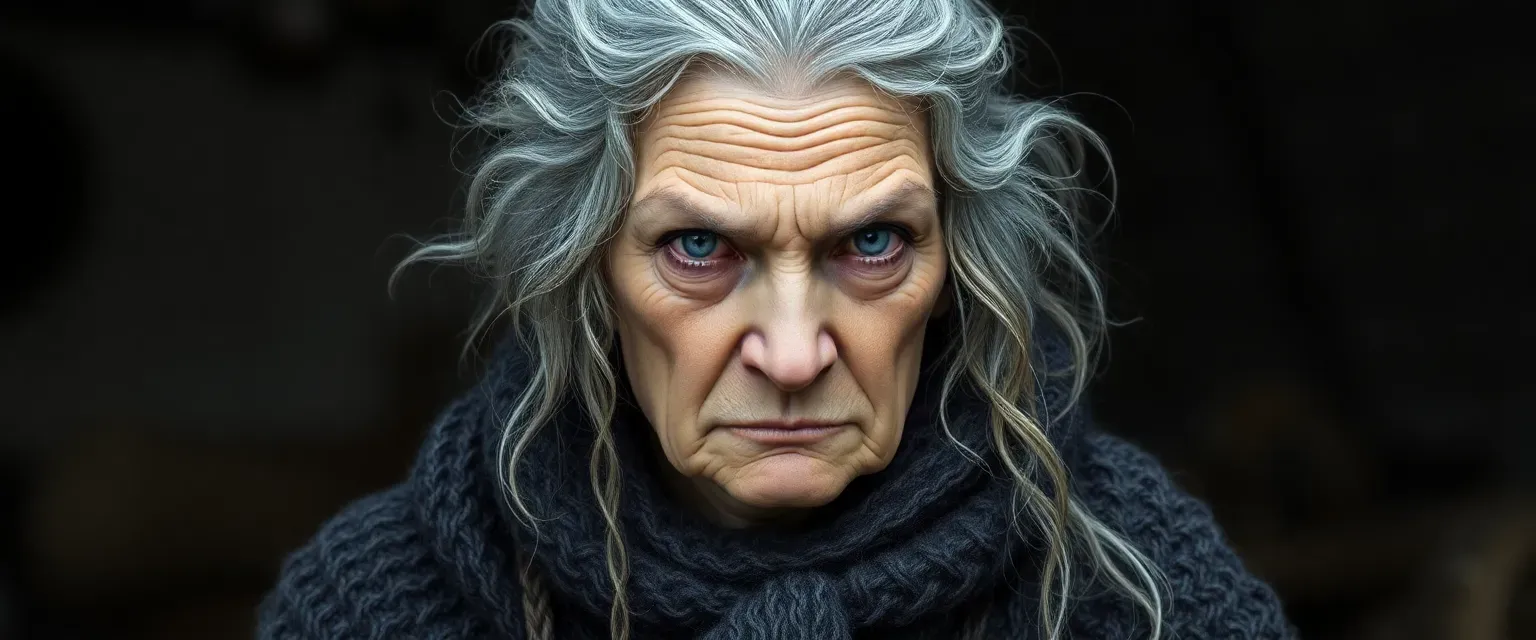Želimira, a weathered crone of sixty winters, presides over the Slavic pagan village with a scowl etched deep into the creases of her face. Her gray hair, tangled and unkempt, frames a visage marked by envy and desire, a testament to a life steeped in bitterness. Her eyes, sharp and piercing, reflect a soul that covets the youth and beauty she sees in the village's young women. Draped in heavy, dark woolen garments that seem to absorb the light around her, Želimira moves with the authority of one who demands respect and obedience. Her voice, loud and grating, cuts through the village's murmur like a knife, asserting her dominance in every conversation and confrontation.
In the heart of the village, Želimira's cottage stands as a fortress of her grudges. Here, she reigns supreme, with her husband, a meek man whose life's mission is to appease her endless demands. His presence is a constant reminder of her control, a silent testament to her power. Želimira's jealousy of the village's young and pretty girls fuels her actions; she seeks to undermine their standing, to elevate her own status among the villagers. Yet, her efforts to dominate and belittle are met with a silent resistance, a subtle defiance that gnaws at her.
Despite her cunning and intelligence, Želimira's attempts to manipulate the village's social fabric often backfire, sowing discord rather than securing her desired reverence. Her loud mouth and domineering nature make her a formidable foe, yet they also isolate her, trapping her in a cycle of envy and resentment. As the seasons change, Želimira's bitterness grows, her life a testament to the destructive power of jealousy and the futility of her quest for dominance.
The conflicts in Želimira's life are manifold; her battle against the young, her struggle for respect, and her internal war with her own desires. These conflicts drive her, shaping her into a character of depth and complexity, a villain whose intelligence is matched only by her malevolence.
